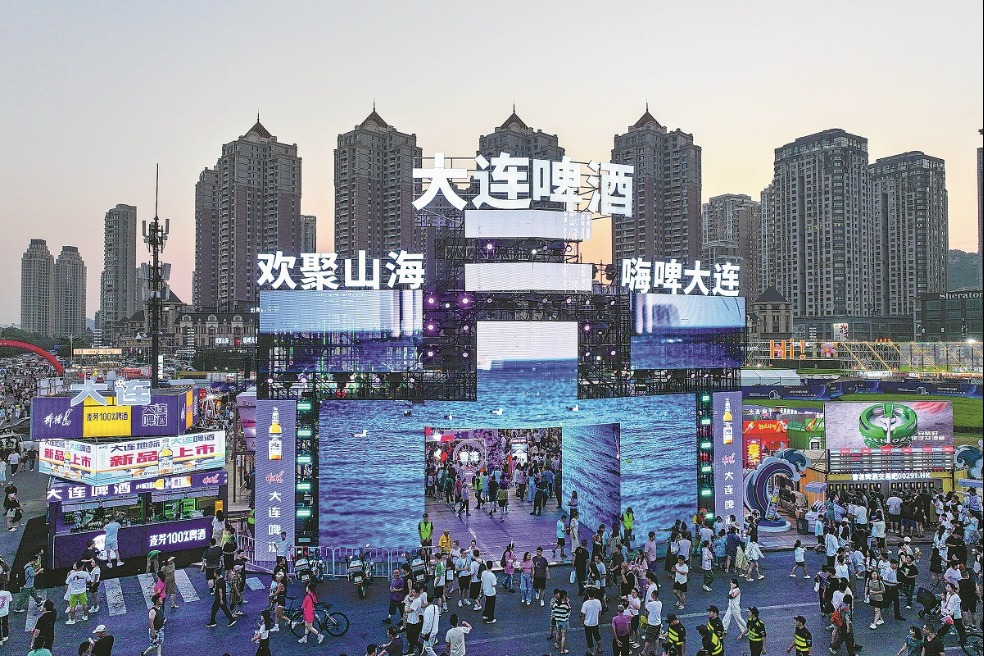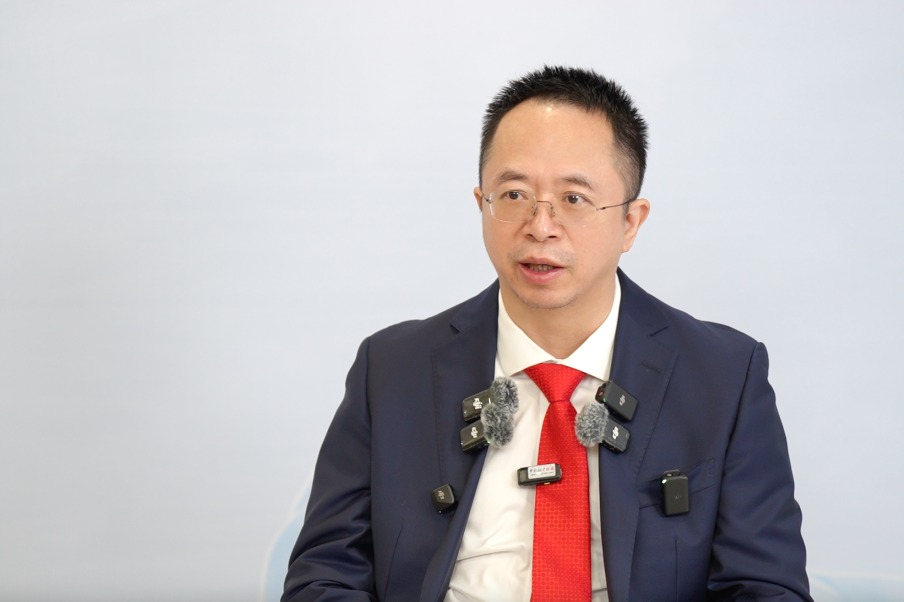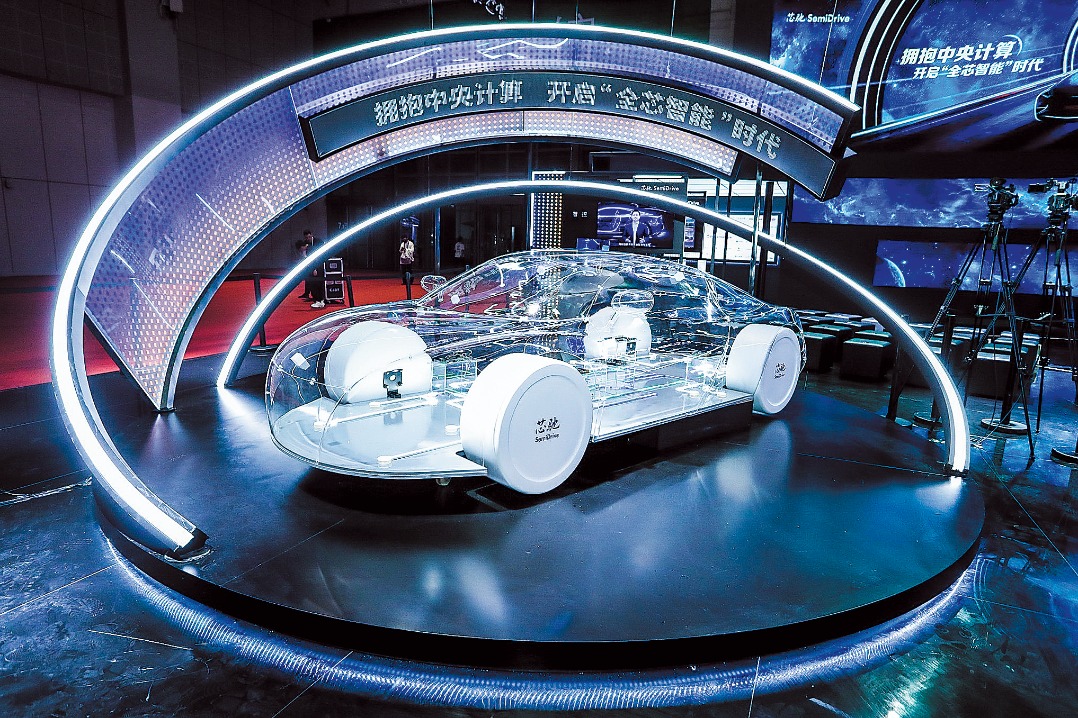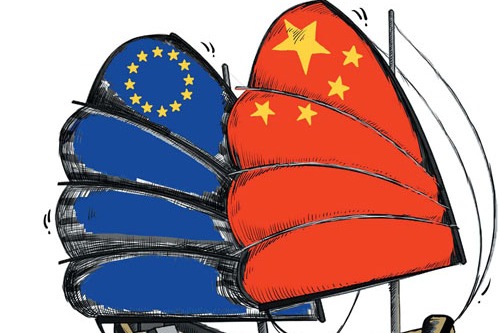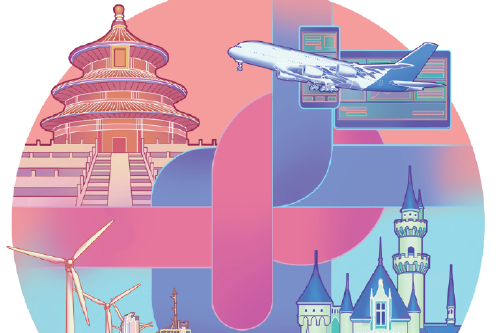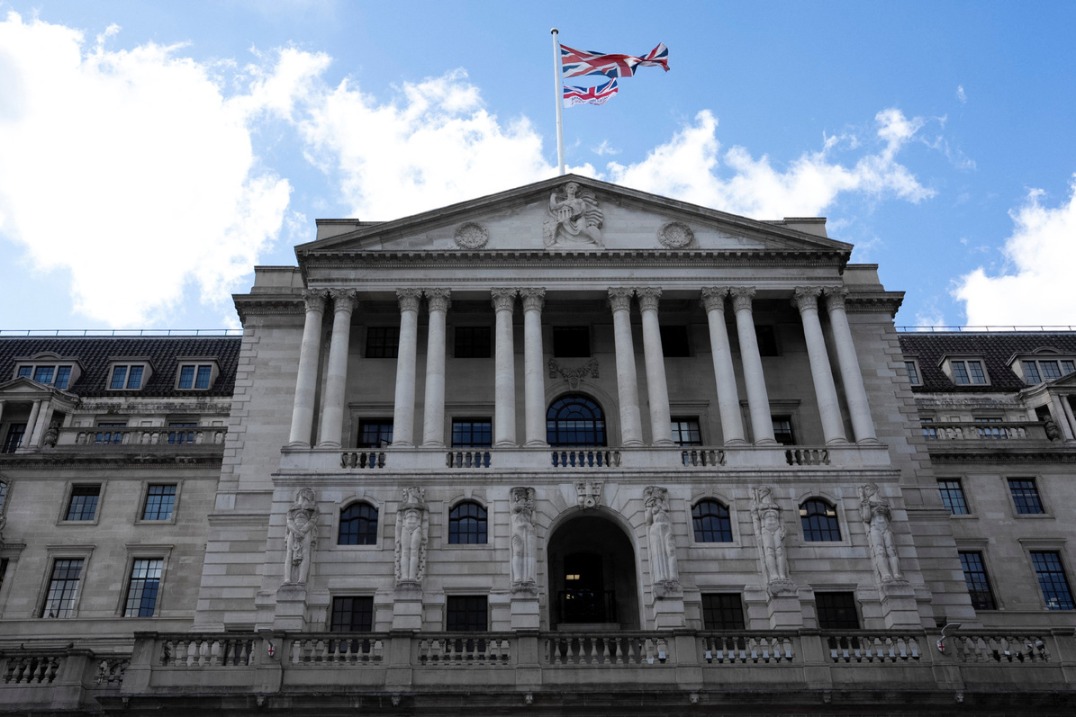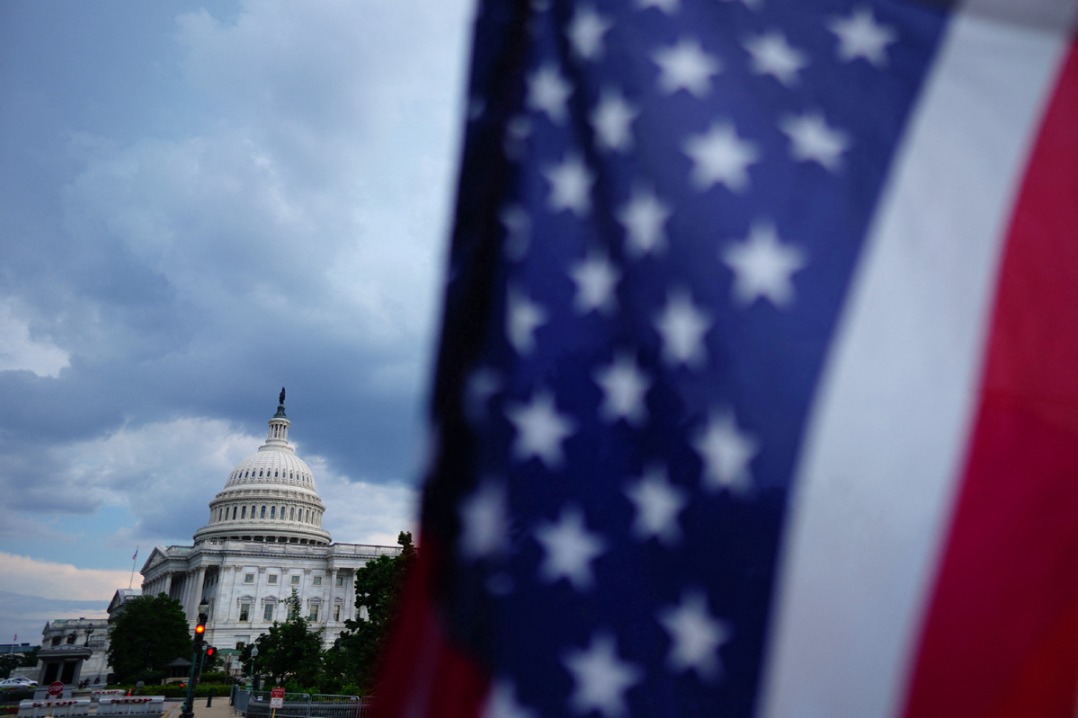In search of lost stability
With their ties strained, China and the EU will work to reset their relations at the leaders' summit


In 2025, the European Union and China celebrate the 50th anniversary of the establishment of their diplomatic relations. The EU-China Summit was held in Beijing on Thursday amid economic and geopolitical pressures, strained relations and growing and ongoing trade tensions. In October 2024, the EU imposed tariffs on Chinese electric vehicles, including antisubsidy duties of up to 35.3 percent on top of a 10 percent base tariff. Since then, the trade tensions between the EU and China have increased.
But despite the tensions, the July summit went ahead well. Liu Jianchao, minister of the international department of the Communist Party of China Central Committee, delivering a speech in Cyprus in June, stated that "China is willing to work with the EU to maintain a correct mutual understanding and be a trustworthy and reliable partner on the road ahead".
Taking into consideration the 50th anniversary of the EU-China diplomatic ties, the July summit was more than just image management; it produced tangible outcomes. Within this context, it is worth mentioning the fact that at the 13th round of China-EU High-level Strategic Dialogue on July 2, Chinese Foreign Minister Wang Yi and EU High Representative for Foreign Affairs and Security Policy Kaja Kallas agreed to deepen mutual understanding and work together to get well-prepared for the leaders' meeting with the aim of enhancing cooperation.
The July summit served as a venue to improve mutual understanding and resolve differences through dialogue. Since Beijing and Brussels support multilateralism and open cooperation, their comprehensive strategic partnership is essential to the United Nations operation, particularly in a period of growing uncertainty and instability globally. At the same time, Brussels — the heart of EU policymaking — is experiencing an increasingly tense political climate as the European institutions face both internal divisions and external pressures. Meanwhile, the EU, built on and driven by the capitalist model, faces inter-capitalist competition and conflict among different member states and industrial entities. Consequently, people across Europe are experiencing a rolling and growing polycrisis: high living cost, conflicts, instability, rise of far-right extremism, inequalities and widening regional disparities.
In 2024, 21 percent of the EU population or 93.3 million people were at risk of poverty and social exclusion. Further to the transatlantic system of intercapitalist competition and conflict, there are objective reasons and concerns that the increased EU military spending will come at the expense of social policies and programs, pushing more people into poverty. This trend is raising serious questions about the impact on the EU's climate change initiatives, social welfare programs and public health spending.
There has been an ongoing debate in many European countries about the "militarization of politics", not only because of the Ukraine crisis, but also because of the US' "war economy" agenda. The United States has been the world's largest military spender since the 1940s, and in 2024 its spending on the military reached $997 billion, according to the Stockholm International Peace Research Institute. This figure is significantly higher than the combined spending of the next nine largest military spenders.
In 2024, NATO spent $1.5 trillion, representing over 50 percent of the global total. The US adhering to a Cold War mentality continues to prioritize tariffs and bombs over diplomacy.
Meanwhile, the EU's most dominant member states, namely Germany and France, which make up almost half of the eurozone economy, face political turbulence and economic woes. They are paralyzed by internal divisions and huge economic problems.
Germany faces headwinds from a shortage of skilled labor, excessive bureaucracy and high energy prices. France, amid a spiraling political crisis, enlarges to the EU's bigger political problems. People in the EU are demanding realistic and progressive solutions that serve the needs of their societies. As the West would not be able to manage major confrontations, China can play a structural role in cultivating and preserving peaceful paths. Beijing's proposed global initiatives are waymarkers to abandon the Cold War mentality and to stop stoking confrontation with provocative moves, including the weaponization of outer space (i.e., the US "Golden Dome" plan).
As the international community is witnessing the emergence of a multipolar world amid complex geopolitical changes, the concept of building a community with a shared future for humanity serves as an anchor for cooperative multilateralism. The notion of true multilateralism can be considered as an outcome of China's policy to help meet humanity's common challenges. By seeking common ground, the envisioned community is a way of upholding the values of peace, cooperation, openness and inclusiveness. The question is whether the EU can adopt a new dynamic to help realize such a community.
The July summit came at a complicated time for the EU, which finds itself caught between increasing trade strains with the US and its own strategic tensions with China.
Meanwhile, the member states of the EU are beginning to appreciate that they can no longer depend on the transatlantic alliance. In the future, the alliance will not be the same as it was before the current Donald Trump administration. For instance, the US' latest threat to impose 30 percent tariffs on goods imported from the EU, starting effective from Aug 1, is considered by the EU to be an impudent action and "a slap in the face".
In view of this and despite the series of ongoing global trade disagreements and growing divergences, the China-EU Summit was intensely involved in strategic matters and deliverables pertinent to the stability of bilateral relations.
The author is recipient of the 2024 Chinese Government Friendship Award, a former rector of the European University Cyprus, an ordinary member of the European Academy of Sciences and Arts and director of the CASS-EUC Chinese Studies Center. The author contributed this article to China Watch, a think tank powered by China Daily. The views do not necessarily reflect those of China Daily.
Contact the editor at editor@chinawatch.cn.

















